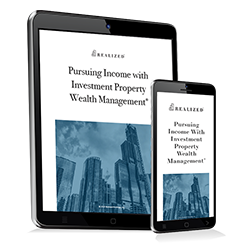
When we are younger, retirement seems like a far-off adventure for an unidentified someday, like exploring the Great Wall of China or the pyramid of Intihuatana at Machu Picchu.
A year before your retirement, however, things have changed dramatically. Your last day of work is just a handful of paychecks away. You’ve reached a major career milestone, but before you head off into the sunset (and hopefully take one of those long-dreamed-of vacations), there’s still some tidying up to be done. Below is a list of important things you should take care of a year before your retirement.
5 Things to Do Before Retirement
Ideally, you’ve already begun formulating pre- and post-retirement game plans. If you haven't, there's still time to start checking these five items off your 12-month pre-retirement game plan.
- Figure out your healthcare options. Healthcare is second only to lodging for post-retirement expenses. Seniors on average pay $6,668 on healthcare each year. Will you pay out of pocket for a health insurance marketplace plan from a major provider or transition to Medicare? You’ll need regular access to medical providers as you age, and the sooner you sort out your healthcare plan the better.
- Build Short-Term and Post Retirement Budgets. You have one year left of drawing a salary or receiving regular paychecks, as well as any commissions or bonuses that are part of your compensation package. For short-term budget planning, dedicate as much of these funds as possible to your retirement savings since they may represent the very last of your career earnings. For long-term post-retirement budget planning, compile a list of guaranteed income streams such as Social Security, pensions, or fixed annuities, as well as any other potential income such as investment accounts, IRAs, or rents from real estate investment properties and weigh those projected totals against your known expenditures. Now is the time to figure out ways to reconcile retirement income against expenses.
- Determine When to Take Social Security. You can begin drawing Social Security at age 62, but your benefit will be permanently cut by about 25 percent. Waiting until you hit full retirement age – 67 for people born after 1960 – allows you to draw 100 percent of the benefits you paid into throughout your career.
- Consolidate Banking and Investment Accounts. About half of Americans have accounts at multiple banks. There are many good reasons for spreading your money across multiple financial institutions while you are working, but consolidation can help make managing your finances easier in retirement. The same goes for brokerage accounts – working with a single financial advisor can help simplify planning and help your advisor better meet your financial retirement goals.
- Reexamine – and Rebalance – Your Investment Portfolio. The 60/40 portfolio has long been the standard asset allocation for retirees and those nearing retirement. This tried-and-true investment approach that calls for a mix of 60 percent stocks and 40 percent bonds may work for many retirees, but some financial experts and asset managers say the model is outdated and fails to deliver maximized returns. Retirees may be better positioned using the 60/40 strategy as a core to maintain exposure to equities markets and reap the benefits of bull market runs, but also rebalancing to include investments in alternative assets that can provide portfolio diversification, potentially higher returns, and a hedge against market volatility.
The Bottom Line
Retirement is a huge career milestone. It brings about a new set of responsibilities, though. As your 12-month countdown to retirement draws near, consider your financial retirement goals, and begin working with trusted financial professionals to ensure you have sound pre- and post-retirement game plans in place.
This material is for general information and educational purposes only. Information is based on data gathered from what we believe are reliable sources. It is not guaranteed as to accuracy, does not purport to be complete and is not intended to be used as a primary basis for investment decisions. It should also not be construed as advice meeting the particular investment needs of any investor. Realized does not provide tax or legal advice. This material is not a substitute for seeking the advice of a qualified professional for your individual situation.



